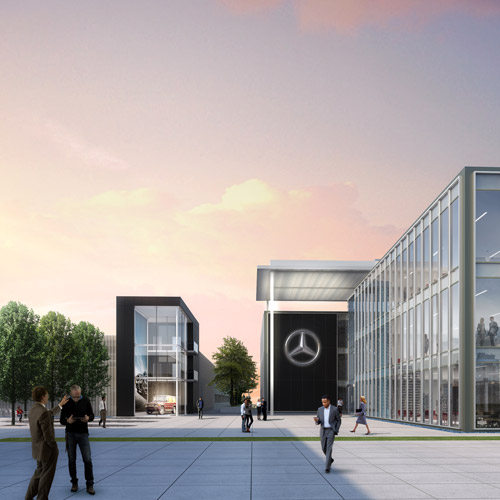Albert Plans took an interest in construction from a young age. His father owned a small construction company that handled both residential and commercial projects, and through helping his father on job sites, Plans gained much of his practical experience.
Of course, his interest didn’t stop there. His formal education includes a degree in industrial engineering with a focus in construction from a school in Spain and a master of construction management degree from the University of Illinois. He also attended the Harvard Graduate School of Design and MIT for executive programs, and is currently working on a doctorate in industrial engineering.
“I have a good understanding of technology and the construction sector,” he says. “This well-rounded background allows me to perform a number of different roles.”
Before joining Cimpress about eight years ago, Plans worked for an engineering firm and a large contractor. After experiencing both the construction and design sides of the industry, he wanted to gain experience as an owner.
“Cimpress was a young company that was growing internationally,” he recalls. “I felt I could use my industrial engineering background but also learn more about office design—and get a better understanding of sustainability.”
A global leader in mass customization and web-to-print, Cimpress, which owns Vistaprint, produces everything from customized marketing materials and apparel to personalized photo products. In his current role as senior director and head of corporate real estate, Plans is responsible for “supporting the company in matters related to real estate construction and design of facilities globally.” That translates to overseeing the design and construction of new spaces, the expansion of existing spaces, and maintaining current facilities. Plans leads a team of 18 engineers, program managers, and factory planners. He describes his management style as consultative.
Gehry Provides Guidance
When asked about the person who has had the biggest influence on his life, Albert Plans names architect Frank Gehry. As a construction professional involved in building design, Plans says he admires how Gehry identified the lack of technology to support his designs back in the 1970s and even founded his own technology company in 2002. Gehry Technologies built complex 3-D modeling tools for architects and engineers coming from the aerospace and automotive sectors. “He was a pioneer in how technology would transform the construction industry and initiated a journey that we are still on,” Plans says.
Today, the company has about 40 locations—a number that Plans expects to grow in the next three to five years. Considering the company’s global reach, he does a considerable amount of international travel for work, but he tries to be as efficient as possible with his time.
“If I have to go to Asia, I will schedule visits to several countries on that one trip and travel at night,” he says. Nevertheless, face-to-face meetings aren’t always feasible, which is where technology—such as videoconferencing and sophisticated document management platforms—help eliminate the need for some travel.
Plans and his team are currently working on the company’s new building in Waltham, Massachusetts, which hosts about 1,000 Cimpress team members. Their first step? Creating a worldwide company standard.
“We are trying to establish standards for multiple functions for our office space around the world, to set a baseline we can replicate in terms of factors such as workplace design, amenities, and sustainability,” he says.
The five-story Massachusetts building features an open floor plan, with workstations positioned in clusters. Cubicles with adjustable heights allow for easy collaboration. “We put the cubes and pods near the windows so people have views,” Plans says. The facility also features a cafeteria with a living green wall, a fitness center, game room, landscaped courtyard, and charging stations for electric vehicles.
Sustainability is important to the company, and figures into the building in more ways than the green wall and charging stations. Temperature, for example, is controlled by sector to ensure the comfort of all employees, the lights go down if it’s sunny out, and the roof of the garage has solar panels for renewable energy. Cimpress reduced energy usage in the facility by 30 percent through LED lighting and lighting control panels, and there’s been a 40 percent reduction in water consumption from plumbing fixtures.
Plans attributes many of these changes to technology, which is definitely affecting the construction industry.
“The Internet of Things will bring smart concepts into buildings,” he says. “The construction sector will take the best practices from appliances and cars and apply them to buildings.”
One of the foremost examples is building information modeling, which is designed to create a single file and a single model with all the information related to a building, instead of separate files from the architect, the electrical engineer, the mechanical engineer, etc.
“If you move one wall, all the different disciplines behind the wall—plumbing, electrical, mechanical, acoustics—are aware of the change, in real time,” Plans says. “It’s truly a change in mindset. Everyone works together instead of defining boundaries and ownership for parts of the project.”
As for the future of Cimpress, Plans sees growth.
“Some companies grow by doing the same thing over and over,” he says. “We’re always doing new things in new geographies and new formats. Over the next three to five years, it will be a time of expanding current markets and also being successful in things that we’re just starting to think about now. They will be real game-changers.”




